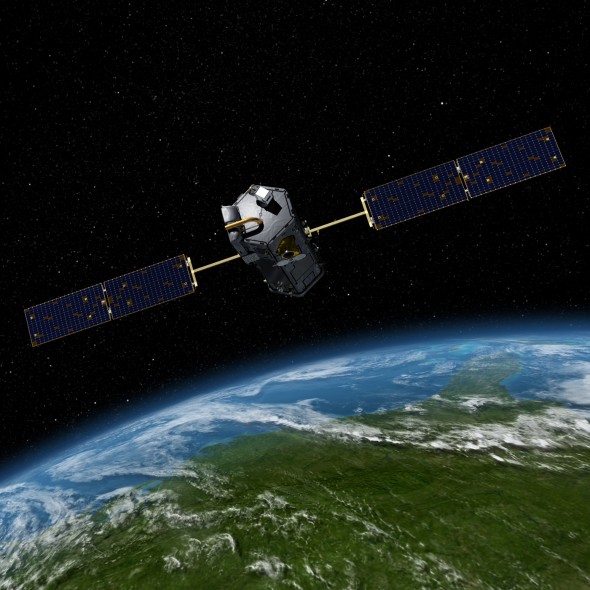Global Air Pollution Is Getting Worse, but Removing It Could Worsen Climate Change
Global Air Pollution Is Getting Worse, but Removing It Could Worsen Climate Change
Airborne microscopic particles kill millions of people each year, but they also lessen some of the effects of man-made global warming.
Air pollution is a killer, and it’s getting worse. According to a new study of over 3,000 cities around the world conducted by the World Health Organization, the amount of microscopic particle pollution increased 8 percent between 2008 and 2013. The findings were especially bad in low- and middle-income regions, where some 98 percent of cities don’t meet the WHO guidelines on air quality. In wealthy parts of the world, that figure is 56 percent.
Recent research shows that tiny particles of sulfur and nitrogen oxides, black carbon, and other pollutants contribute to the deaths of over three million people each year around the world. The particles, which get more hazardous the smaller they are, can lodge deep in the lungs or pass into the bloodstream, contributing to asthma, cardiovascular disease, and stroke. A recent study in Nature suggested that under a business-as-usual scenario, the global health burden of this kind of air pollution could double by 2050.
“We have a public health emergency in many countries. Urban air pollution continues to rise at an alarming rate, wreaking havoc on human health,” Maria Neira, the WHO’s director of public health, told The Guardian. “It’s dramatic, one of the biggest problems we are facing globally, with terrible future costs to society.”
But some of those toxic particles have a kind of silver lining: they help cool the planet. That’s particularly true of the sulfur compounds that are commonly emitted from coal-fired power plants. They reflect sunlight back out into space, preventing it from reaching Earth’s surface. Black carbon’s effect is more complex: while the soot particles provide a bit of shade, they also absorb sunlight, heating up the atmosphere at altitudes between two and six kilometers above sea level. Unfortunately, that’s where many of the world’s continental glaciers reside, and black carbon can increase the rate at which they melt.
Still, on aggregate the cooling effect of these particles appears to be pretty large. A 2009 study estimated that perhaps 47 percent of greenhouse-gas-related warming was being masked by huge clouds of particles smaller than a micron in diameter.
That shouldn’t make anyone wonder whether reducing air pollution is worth it—globally, it ranks as a bigger killer than malaria or HIV/AIDS. But as we do take steps to clear the air, we need to be aware that the side effects are likely to be significant.
(Read more: The Guardian, Nature, Atmospheric Environment, World Health Organization, “Cleaning Up Diesel Trucks and Cooking Stoves Could Reduce Climate Change”)

Leave a Reply